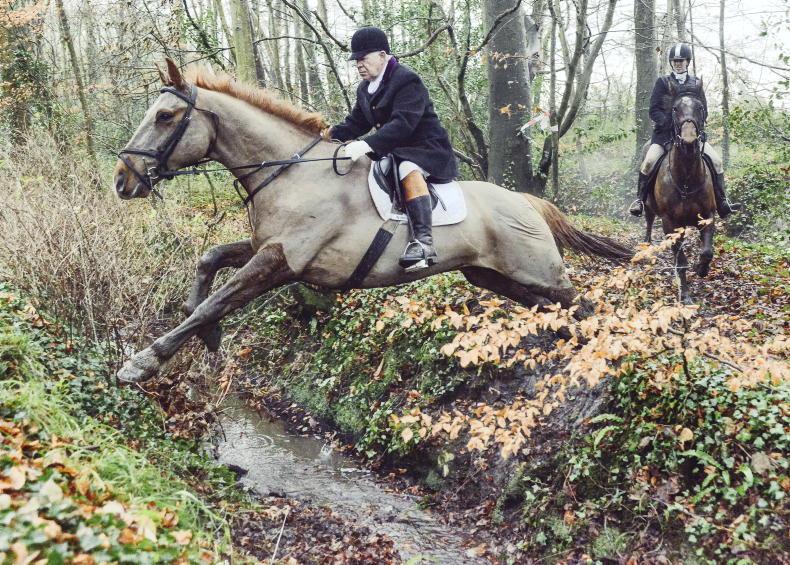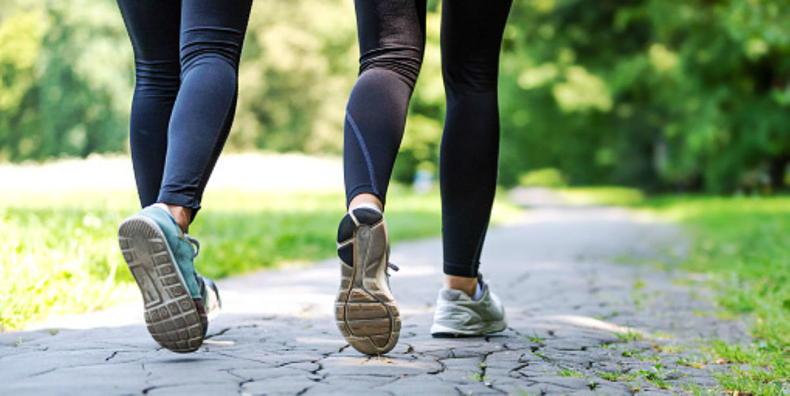CONSIDERING a couch to 5km this winter? Cold, wet mornings, damp, dark evenings, doesn’t sound too appealing. Bear this thought in mind as we pull our hunters in from their summer’s grass and gear them up for the hunting season ahead. Like us, they too may likely have aches and pains when regaining their fitness after their well-deserved break.
Considerably tougher than bearing the roads for a 5km jog, following hounds across country is slightly more unpredictable and the going just that bit deeper. So how can we ensure our horses are ready to hunt and support them throughout what we hope is a cracking season ahead?
From the perspective of a veterinary physiotherapist there are several measures we can take to improve our hunter’s fitness and longevity over the season, with some of the most influential actions starting at home.
In the process of getting from the summer fields to the hunting fields sometimes less is more at the start. Although horses are much better at retaining their fitness than us, the first week or so back in work should mainly consist of walk work, ideally out hacking then gradually building up the trot and canter.
Stamina is the most important aspect of fitness for hunters, like a marathon runner rather than a sprinter. Walk work with the incorporation of hills is one of the best ways to target stamina. Short bursts of trot and canter work can then be included, like interval training.
Variety is always the spice of life, a varied fitness program leading up to and during the hunting season is key. Like any athlete, cross-training is essential for cardiovascular fitness and strength as well as preventing injury. Tempting as it is to pop them on the lunge or the walker for exercise daily, it will not pay off in the long run.
Although it may not be their first love, flatwork is the gymnastics of the equine world. It will improve our horses’ core strength, stability, and balance essentially decreasing the risk of injury. Passage and piaffe are not necessary but a bit of lateral work mixed with hacking and canter work would be a good start.
Rest days are just as important as workdays, especially after a hard day’s hunting. However, standing in the stable for the day is not the kind of rest desired. It is best to get some movement in, turn out or a 30-minute walk will help loosen up tired stiff muscles. Aim for at least one or two rest days each week to allow for recovery and healing.
When it’s time for thermals under the hunting coat and a hot beverage, we can help our horses too. Aside from the standard warm rugs, a proper warm-up and cool-down are a must. Although not always possible, when the hounds go, we go.
Try to ensure a sufficient warm-up before the first run. Throughout the day avoid letting your horse cool off completely, keep them ticking over at walk, out of the hounds’ way! Cool-down should not be substituted for a hose-down and away home. Especially for older horses, walking until they are warm at rest will help prevent delayed onset muscle soreness and stiffness.
When the physiotherapist steps in? To ensure our horses are reaping the maximum benefits from the above measurements, regular maintenance physio just like all athletes will help to relieve tight sore muscles, support joints and ultimately prevent injury. Ideally our hunters should have a maintenance session at the start, middle and end of each season, to ensure all the cogs on the wheel are turning as they should.


 This is a subscriber-only article
This is a subscriber-only article
 It looks like you're browsing in private mode
It looks like you're browsing in private mode










SHARING OPTIONS: